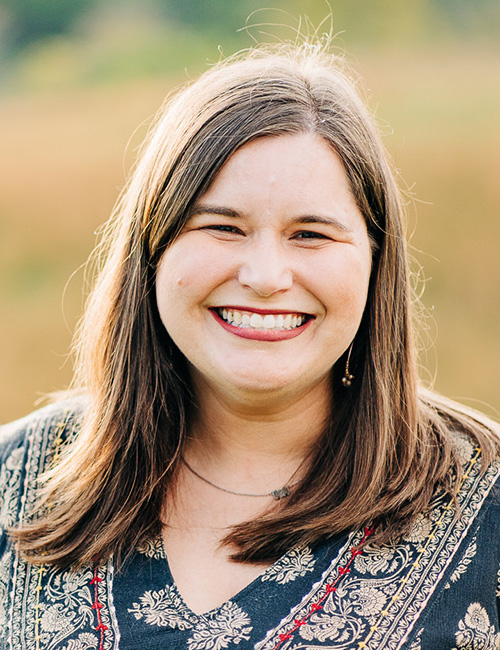By REV. EMILY SANFORD

A racial healing circle was held at The University of Southern Mississippi’s Wesley Foundation as part of the Mississippi UMC conference’s End Racism for Good initiative.
Have you ever noticed how often scripture emphasizes dialogue? Throughout the Bible, we find conversation after conversation spoken among people, between people and God, and even between a talking donkey and Balaam in Numbers 22. We rely on conversations to grow closer and maintain relationships.
The book “Crucial Conversations: Tools for Talking When Stakes Are High” has been beneficial to me in navigating interactions with family, church, and friendships where opinions vary, stakes are high and emotions run strong. As a pastor, social worker, spiritual director and coach, people often turn to me for guidance when they find themselves stuck in a conflict or at an impasse in their relationships.
While our first reaction to conflict is most likely to either fight or run, our faith invites us to lean in and engage in deeper dialogue.
Consider the conflict that arose in the early church between Peter and Paul over how to handle Gentile converts to Christianity. Paul gives some insight in his letter to the Galatians:
“But when Peter came to Antioch, I had to oppose him to his face, for what he did was very wrong. When he first arrived, he ate with the Gentile believers, who were not circumcised. But afterward, when some friends of James came, Peter wouldn’t eat with the Gentiles anymore. He was afraid of criticism from these people who insisted on the necessity of circumcision. As a result, other Jewish believers followed Peter’s hypocrisy, and even Barnabas was led astray by their hypocrisy. When I saw that they were not following the truth of the gospel message, I said to Peter in front of all the others, ‘Since you, a Jew by birth, have discarded the Jewish laws and are living like a Gentile, why are you now trying to make these Gentiles follow the Jewish traditions?’” – Galatians 2:11-14, NLT
Paul knew he needed to engage Peter “to his face.” Of course, I recommend the approach found in Matthew 18:15-17, to first address conflict one-on-one, if possible, before bringing it up as Paul does “in front of all the others.”
Here we find two major leaders of the church in deep disagreement. Peter, an uneducated fisherman, yet also the one to whom Jesus gave the nickname “the Rock” upon which He would build the church, seems to be falling into the same trap from Caiaphas’ courtyard, where he denied being one of Jesus’ disciples. Maybe, like Peter, you are desperate to blend in with the crowd, to not make waves, and to overly accommodate when “certain people” are around, because you are “afraid of criticism.”
Paul is concerned when he sees Peter pulling back, separating out of fear, and causing others to be “led astray.” When Paul claims they weren’t “following the truth,” it could be translated that they were not “walking in a straight line” toward the truth of the good news. Paul asks a powerful question that helps Peter dig deeper.
I am grateful for the many ways Mission Mississippi makes room for deeper conversation, asks thoughtful questions, and invites us to consider our actions in a new way. In June 2020, I received a new appointment that led me from Galloway United Methodist Church (UMC) in downtown Jackson, where I had served for 12 years, to Wesley UMC in Tupelo. Moving in the middle of a pandemic brought many challenges to building connections. Though I prefer meeting face-to-face, virtual meetings offered for statewide gatherings, as well as ones particular to pastors in the Tupelo area, helped me build relationships outside of my own congregation, denomination, gender and race.
Rev. Hannah Shempert invited me to join a group studying Latasha Morrison’s “Be the Bridge: Pursuing God’s Heart for Racial Reconciliation” through Zoom. I had the joy of facilitating racial healing circles with the Mississippi UMC conference initiative to End Racism for Good. I have also been welcomed into prayer gatherings where I was uncertain how I would be accepted by pastors whose denominations are not affirming of women in ministry. Time and time again, I have been moved by their willingness to include me as the lone clergywoman.
I pray that in the midst of deep disagreements and divisions in our churches, denominations, nation and world that we might engage in even deeper dialogue that includes asking powerful questions and truly listening to one another. #DeeperConversations

Rev. Emily Sanford is pastor of Wesley United Methodist Church in Tupelo. An introvert and Enneagram 7, she craves deep, meaningful conversations and brings a genuine enthusiasm to helping the church connect in the community. Originally from Starkville, she loves cheering on her Mississippi State Bulldogs and Duke Blue Devils, as well as performing in the Tupelo Community Theater in her spare time

